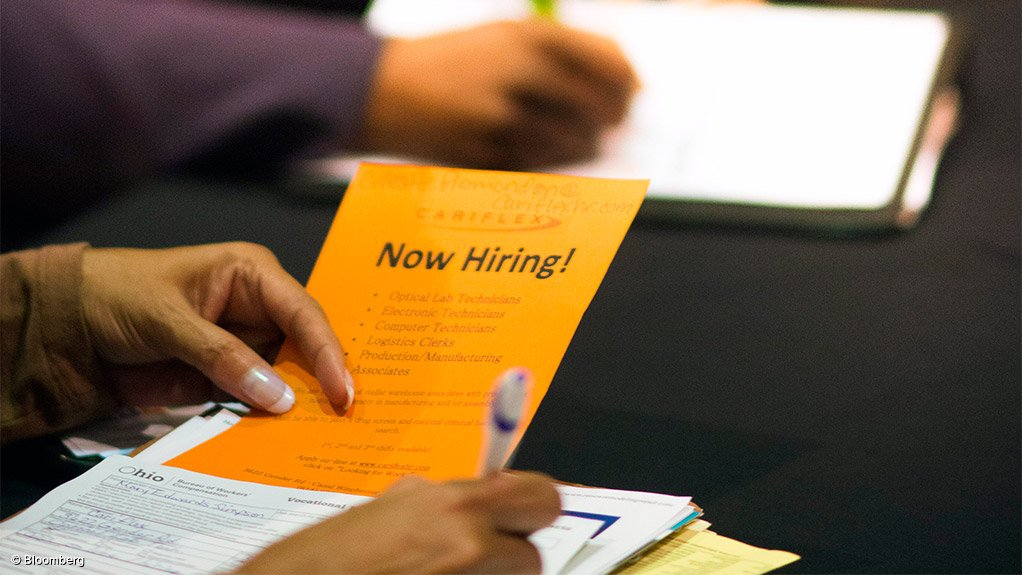Marking a government-driven effort to roll back South Africa’s stalled employment rate and boost economic inclusion of the youth, President Jacob Zuma on Tuesday met with representatives of various youth organisations in a bid to thrash out the 2020 iteration of government’s National Youth Policy.
Anchored on the much-touted National Development Plan, the 15-year strategy would look to develop policy responses to joblessness, low skills levels, poor access to healthcare and substance abuse issues – challenges identified by government as key inhibitors to the economic progress of the country’s youth.
Zuma said in a statement to the media that the inaugural Presidential Youth Working Group, held in Pretoria, had seen discussions between government and several youth formations, enabling young adults to participate in policy formation and governance “at the highest level”.
“I have established this working group to accelerate the implementation of all government programmes that will enable many more young people to lead meaningful and productive lives.
“It is a strategic platform for government and we expect to engage other social partners such as labour and business on matters that will arise from the work of the working group,’’ it read.
The President was supported in his discussions by the Presidential Youth Development Task Team, which comprised several Deputy Ministers led by Planning, Monitoring and Evaluation Deputy Minister Buti Manamela, as well as the National Youth Development Agency, led by chairperson Yershen Pillay.
The youth delegates represented various sectors, including professional associations, agriculture, business, education and skills development, the religious sector and organisations working in the realm of social development.
According to figures provided to the media by Manamela following the closed session, the absorption rate of the youth into employment lagged behind that of older age groups.
Only 36.1% of those aged 15 to 34 were employed – almost half that of the 55 to 64-year age group.
The country’s young population was also more susceptible to assault and HIV infection. Alarmingly, 69% of all deaths related to assault in South Africa occurred in the 15 to 34-year age group, he added.
“This is frightening. We must work with our young people themselves to turn the picture around. We’ve been told by the youth organisations represented here today that people don’t want a hand out, they want a hand up, and the establishment of the working group should achieve just that.
“The President says that youth development is now everybody’s business and will become a priority in all government departments,” Manamela remarked.
Elaborating on issues making the agenda, Zuma revealed that discussions had centered largely on economic participation and transformation, education and skills development, healthcare and substance abuse, nation building and social cohesion, as well as the development of effective and responsive youth development institutions.
“The policy also outlines initiatives and programmes that respond to the challenges which hinder our young people from taking charge of their destiny.
“These include capitalising on the R2.7-billion made available by both the Industrial Development Corporation and Small Enterprise Finance Agency to finance youth-owned enterprises and accelerating the implementation of the Youth Employment Accord of 2013,” he said.
The 2020 National Youth Policy would further seek to introduce interventions to provide unemployed and poor young people with income and opportunities for community service and engagement and ensure that youth brigades coordinated with the National Youth Service to engage one-million young people over a period of two years, as per the New Growth Path.
The Department of Higher Education and Training would, meanwhile, be tasked with developing an “articulation policy” to harmonise education between schools, adult basic education and training centres, community colleges, training and vocational education colleges, universities and other providers of education and training.
At the foundation learning level, the Department of Basic Education would, under the policy, work with private providers to support learners that needed a “second chance” to pass matric through matric rewrite programmes.
Meanwhile, as part of Youth Month celebrations, Gauteng Premier David Makhura and his Cabinet were set to engage with the youth of the province on Wednesday to discuss the challenges they faced and their role in radical socioeconomic transformation in the province.
EMAIL THIS ARTICLE SAVE THIS ARTICLE
To subscribe email subscriptions@creamermedia.co.za or click here
To advertise email advertising@creamermedia.co.za or click here











